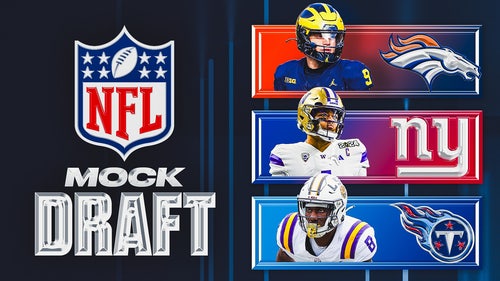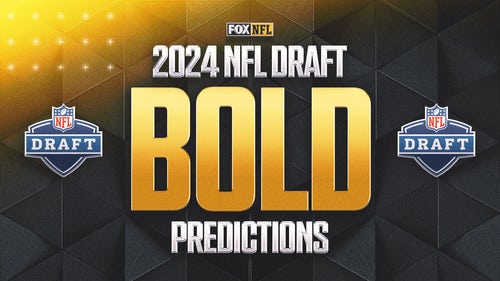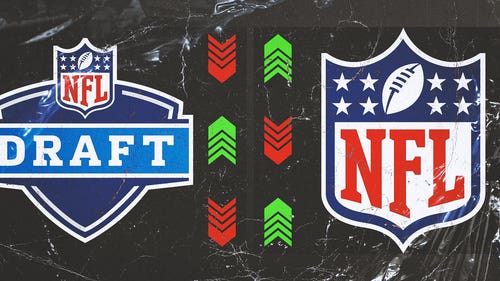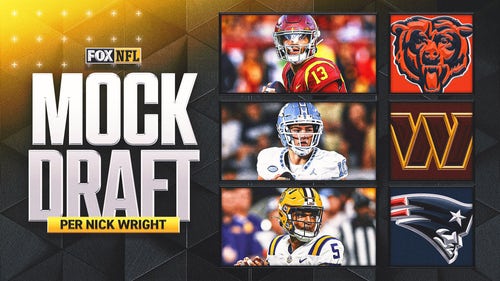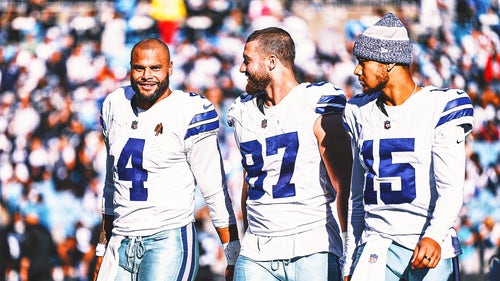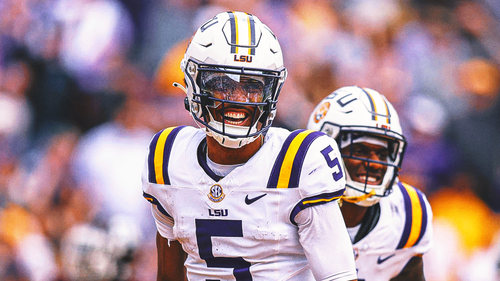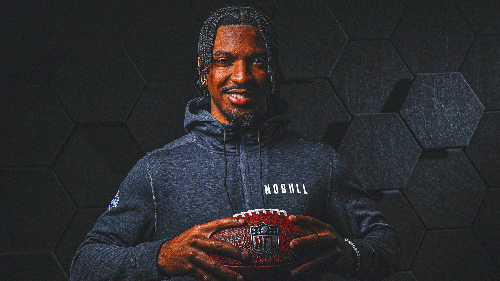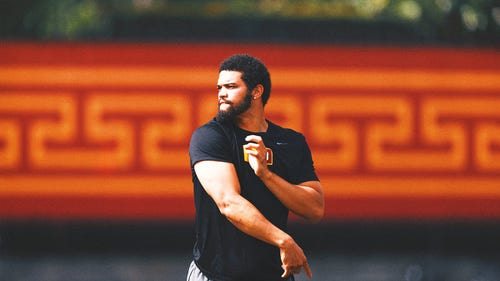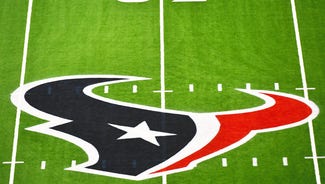
Retiree benefits big issue in labor drama
Not everyone is buying the NFL Players Association's "One Team" pitch to reflect unity during NFL labor talks.
In fact, there is enough of a divide to create an entire league of advocacy groups fighting for the rights of retired players.
While current players have stayed close-knit during the first 10 days of an NFL lockout, some of their predecessors aren't on board. Despite efforts to form stronger bonds with retirees, the NFLPA faces a daunting — and likely impossible — task trying to create a unified front that will satisfy all alumni.
"We are doing yeoman's work to help all of our guys," said Nolan Harrison, a 10-year NFL veteran who was hired last year as the NFLPA's senior director of former players. "We have 40 chapters, chapter presidents, officers, a nine-person board of directors. We're trying to do the best we can. I think guys will tell you we're doing a better job every day."
NFLPA critics say that still isn't good enough.
NFL Alumni Association executive director George Martin has bemoaned the NFLPA's long-standing refusal to meet with him about his group's post-football concerns, but the two sides are finally getting together this week at the NFLPA meetings in Marco Island, Fla.
Smith also wants his group to have representation for retired players during NFL/NFLPA negotiations for a new collective bargaining agreement.
Other retirees don't want affiliation with either the NFL or NFLPA because of the belief their best interests aren't being represented.
One of them is Dave Pear, whose nonprofit group is sponsoring the inaugural Independent Football Veterans Conference this week in Las Vegas. Pear and other factions of retired players believe NFL alumni are entitled to better post-football compensation for having helped laid the groundwork for the league to become a multibillion-dollar business.
"The real issues for retired players have always been a legitimate disability plan, a pension that matches Major League Baseball's and medical care after football," Pear said. "These are three areas that don't get addressed properly . . . We want the benefits we were promised.
"I don't want to be an accomplice to what's going on working within the NFL's system. They're going to keep scamming us until we die off . . . We were the makers of the game. The current players are the keepers of the game."
The history between the NFL, NFLPA and retired players is ugly. Meager pension payments, especially for those who played in previous generations, have contributed to some alumni becoming destitute. Disability claims were often rejected or made difficult to file because of procedural rules.
Concussions that weren't properly diagnosed and treated either because of apathy or lack of NFL medical information had a profound trickle-down effect on players who had potentially suffered brain damage during their careers. The images of broken-down stars like Earl Campbell and premature deaths of former NFL players have further hurt the league's reputation.
More mistrust stems from the NFLPA itself. The now-decertified union paid $26.3 million in 2009 to settle a class-action lawsuit filed by more than 2,000 retired players for the illegal use of their likeness in marketing deals. Pear was one of the plaintiffs, and he believes litigation is the most effective way to ensure retired players receive fair benefits.
"At this stage of the game, there's no intention to do anything other than trying to limit their liability," said Pear, who estimates having personally spent $600,000 out of pocket to cover his football-related medical bills. "We've been bushwhacked all these years. It's hurt these players. It's hurt them big time."
Gene Upshaw added to the mistrust. While he actually did take steps to financially help their cause, the late executive director — who died in 2008 — is better known for saying he doesn't represent retired players. The statement stemmed at least partially from a divide between retirees and active players who didn't want Upshaw allocating more money toward the former.
Throughout that time, retired players failed to organize collectively. The NFL Alumni Association wasn't formed until 2009. Because the group received a $1 million interest-free loan from the NFL for its creation, the NFLPA and some other retired players are suspicious of the group's motives.
"You look sideways at a group funded by the NFL," Harrison said. "They have a marketing agreement with the NFL."
Harrison also said the NFLPA is the only group that can viably represent retired players during CBA negotiations.
"Any time you try to segment a group (of players) and say you only represent one part of it, that's not being the all-inclusive 'One Team' that we've been trying to (push)," Harrison said. "It's almost the exact same thing that people got upset with Gene about. The ownership won't recognize just one group. When we're negotiating, it's got to be for all players. That's the only way we're going to win this thing. That's the only way we're going to be strong."
Martin not only defends his integrity. The former New York Giants linebacker also isn't afraid to take the NFL to task for its current treatment of some retirees.
"There are some Hall of Famers who now earn $140 to $200 a month (in pension benefits)," said Martin, who will address NFL owners Tuesday morning at the league meetings in New Orleans. "That's unconscionable. How in the blue blazes can anybody live off that meager existence? And it's not only the impact on the player himself but the ripple effect on his family.
"Add to those situations where a guy may suffer from physical ailments caused by the game itself and psychological trauma. It's the perfect storm. You might start seeing a lot of cases like Dave Duerson. He may not be the exception but the rule in the future."
NFLPA executive director DeMaurice Smith also has made frequent mention of Duerson in his recent interviews. An 11-year NFL veteran, Duerson committed suicide last month at age 50. Duerson requested that his brain be studied postmortem for damage most likely suffered during his football career.
The referencing of Duerson, as well as others who championed player rights such as Freeman McNeil and the late Reggie White, reflect the NFLPA's 180-degree turn toward retirees since Smith was elected as Upshaw's replacement in March 2009.
This year's NFLPA convention marks only the second time that active and retired players were both invited to attend. Like the NFL, the NFLPA is offering seminars and programs for players to make a better adjustment to life after football.
Harrison said the NFLPA constitution was revamped to ensure two members of its retired players' board would sit on the executive committee negotiating the new CBA so "we have a voice in the room."
"Before negotiations broke down and we had to decertify, we were fighting for an increase in benefits, pensions and a revamp of our disability system," Harrison said. "We want what's fair. If you're going to continue to make money off the likeness (of retired players) in any business of an entity that you don't control and you don't own, there's got to be some kind of reciprocity there.
"At $9 billion a year and growing (in annual revenue), there should be enough to help all players."
How that gets done was a significant point of contention during the CBA negotiations that recently ended in an impasse and first NFL work stoppage since 1987.
The NFL says it offered an immediate increase of nearly 60 percent to pensions for 2,000-plus players who retired before 1993, when the CBA was ratified. According to the NFL Alumni Association's website, there are 3,134 former players who currently draw pensions averaging $20,349.18 annually.
Harrison said the NFL offered an $84 million increase in the first two years of a proposed 10-year CBA with no other money promised to what he estimates are 16,500 retired NFL players (a league source says the number of those who played long enough to qualify for pension benefits is much lower).
"The NFL really believes that $80 million is going to solve that problem," Harrison said. "It's not."
By instituting a rookie wage scale, NFLPA president Kevin Mawae said his group had offered to reallocate $100 million in draft-pick salaries to retired players annually with another nine-figure amount being funneled to veteran player compensation. A source said the NFL shunned that offer because there was no rebate for team owners who are already adamant about receiving a greater share of revenue to compensate for rising costs and stadium expenses. The inability to agree upon the former issue is the crux of the pending legal battle between the league and NFLPA over the stalled CBA talks.
Benefits for future retirees also have come under scrutiny. The NFL, which already foots a sizable bill for retiree benefits, took the unprecedented step of offering current players the chance to remain in the league's generous health-care program for life. NFL players with at least three accredited NFL seasons currently receive five years of medical benefits after retirement.
The NFLPA shunned the offer because of the caveat that any player who accepts a post-football insurance policy elsewhere would be ineligible from rejoining the NFL's program. The NFLPA also rejected the NFL's demand that players be barred from filing workman's compensation complaints outside the state where their team is based.
The New York Times reported last year that the NFL might someday face as much as $100 million in workman's compensation claims in the state of California, which requires just one career game of service for ex-players to become eligible for filing.
This raises another question: How much is enough for former NFL players, especially since the risk of permanent physical damage is inherent in the game itself? Green Bay Packers president Mark Murphy recently raised the topic during a Times interview.
"I really wonder, sometimes, if we do too much for the players," said Murphy, a former player and NFLPA executive who is part of the NFL's executive CBA negotiating committee. "They've got severance pay and a 401(k) plan.
"I'm a little worried that if we do too much for players in terms of compensation after their careers end and health insurance . . . It's not all bad to have an incentive to get a job."
Harrison said such comments were "distressing" and reflect an elitist NFL approach that helped derail CBA talks.
"If that's what's happening behind closed doors . . . I think we have a long way to go (in negotiations)," Harrison said.
When the end of the road is finally reached, it does appear improved retiree benefits will be part of a new CBA.
"In my numerous conversations with (NFL commissioner) Roger Goodell, he's assured me it's not a matter of ifs," Martin said. "It's a matter of when and to what degree."
That provides an indisputable fact that all factions of ex-players can agree upon: more delays for those who already feel they've waited long enough for better treatment.
Nolan Harrison was interviewed by Alex Marvez and Jim Miller on Sirius NFL Radio. Marvez and Vic Carruci will cohost from 8 to 11 p.m. ET Monday and Tuesday on Sirius NFL Radio.






































































































































